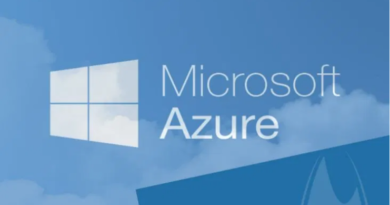Media Groups Voice Support for Julian Assange
Media groups have come out in favor of Julian Assange, urging the US to drop the charges against him.
Twelve years ago Monday, a collection of media outlets published portions of the 250,000 secret documents Assange gained access to in his role as Director of WikiLeaks. Since then, Assange has been wanted by US authorities and spent years holed up in the Ecuadorian embassy in the UK before Ecuador revoked his asylum in 2019. Assange was set to be extradited to the US, but his legal team is currently fighting extradition, leaving him in London’s Belmarsh prison.
According to The Guardian, a group of media outlets are petitioning the US government to drop its charges against Assange. The group includes The Guardian, The New York Times, Le Monde, Der Spiegel, and El País.
Below is a copy of the letter in its entirety:
Publishing is not a crime: The US government should end its prosecution of Julian Assange for publishing secrets.
Twelve years ago, on November 28th 2010, our five international media outlets – the New York Times, the Guardian, Le Monde, El País and Der Spiegel – published a series of revelations in cooperation with WikiLeaks that made the headlines around the globe.
“Cablegate”, a set of 251,000 confidential cables from the US state department, disclosed corruption, diplomatic scandals and spy affairs on an international scale.
In the words of the New York Times, the documents told “the unvarnished story of how the government makes its biggest decisions, the decisions that cost the country most heavily in lives and money”. Even now in 2022, journalists and historians continue to publish new revelations, using the unique trove of documents.
For Julian Assange, publisher of WikLeaks, the publication of “Cablegate” and several other related leaks had the most severe consequences. On April 12th 2019, Assange was arrested in London on a US arrest warrant, and has now been held for three and a half years in a high-security British prison usually used for terrorists and members of organised crime groups. He faces extradition to the US and a sentence of up to 175 years in an American maximum-security prison.
This group of editors and publishers, all of whom had worked with Assange, felt the need to publicly criticise his conduct in 2011 when unredacted copies of the cables were released, and some of us are concerned about the allegations in the indictment that he attempted to aid in computer intrusion of a classified database. But we come together now to express our grave concerns about the continued prosecution of Julian Assange for obtaining and publishing classified materials.
The Obama-Biden administration, in office during the WikiLeaks publication in 2010, refrained from indicting Assange, explaining that they would have had to indict journalists from major news outlets too. Their position placed a premium on press freedom, despite its uncomfortable consequences. Under Donald Trump however, the position changed. The DoJ relied on an old law, the Espionage Act of 1917 (designed to prosecute potential spies during world war one), which has never been used to prosecute a publisher or broadcaster.
This indictment sets a dangerous precedent, and threatens to undermine America’s first amendment and the freedom of the press.
Obtaining and disclosing sensitive information when necessary in the public interest is a core part of the daily work of journalists. If that work is criminalised, our public discourse and our democracies are made significantly weaker.
Twelve years after the publication of “Cablegate”, it is time for the US government to end its prosecution of Julian Assange for publishing secrets.
Publishing is not a crime.
The editors and publishers of:
The New York Times
The Guardian
Le Monde
Der Spiegel
El País



